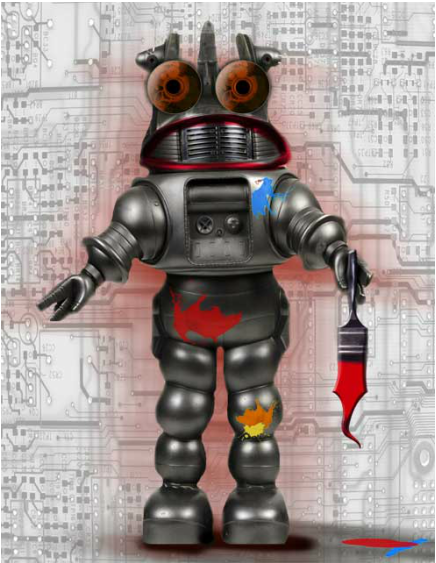|
The world is becoming more computer-centric as we speak. Many careers have vanished like the dinosaurs. Up until fairly recently, most artists and creative types thought they were safe from becoming computerized. With great advances being made with artificial intelligence (A.I.), computers are becoming creative thinkers and doers! Where does this leave artists, writers, and musicians?
As amazing as it may seem for a computer to generate a symphony or opera, it isn’t without controversy. The science-based world supports EMI’s compositions, and celebrated the release of the first album, From Darkness, Light. However, some musicians have voiced opposition to playing this music for fear of hurting their careers. As noted in Virtual composer makes beautiful music- and stirs controversy, "Most musicians, academic or composers, have always held this idea that the creation of music is innately human, and somehow this computer program was a threat in some way to that unique human aspect of creation." Computer-generated writingNarrative Science is a company that is developing computer programs to write anything from business reports to fiction. It’s argued that fact-based, computer-generated articles are now just as good as human-generated articles. As for fiction, computers now have the ability to write novels. However, beyond the novelty, does anyone want to read them past the first few pages? Part of the challenge is to teach a computer to go beyond describing a scene, and to imagine and write prose the way a human can. This is the goal of the What-If Machine (WHIM) project, a venture involving teams at five universities across Europe. The goal of the WHIM project is to build a software system that is able to “invent, evaluate and present fictional ideas with real cultural value for artifacts such as stories, jokes, films, paintings and advertisements”. It’s debatable as to how great these artistic creations are when computers, unlike humans, aren’t emotionally sensitive to the world around them. How can a computer accurately portray humor, love or loss, when it has never experienced anything beyond a series of programmed 1’s and 0’s? Perhaps it’s not about replacing the human touch for the computerized, but about enhancing human skills with A.I. The idea of collaborating with a computer program to enhance artistic skills sounds exciting - especially when the computer doesn’t mind the clean-up process! If you liked this blog post, you may also like: Comments are closed.
|
Categories
All
|
Privacy policy
Copyright 2024 Patricia Pinsk
